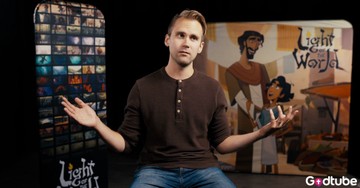Top 5 Bible Movies about the Life of Abraham

Abraham is one of the most important figures in the Old Testament, so it’s unsurprising that various movies have been made about his life. From Sunday School cartoons to biblical epics, the story of the man who made a covenant with God has attracted many adaptors. It would be tempting to say that older movies are always the best. Still, some modern adaptations depict his story better than you might expect, offering inspiration and education for our spiritual lives.
Let’s examine some of the best movies about Abraham and what each one can teach us today. Each entry includes a link to where the movie can be found, as well as a link to parental advice on whether each entry is suitable for children. Yes indicates the movie is G or PG, Maybe indicates it is best for teenagers and up, No indicates it is best for grownup viewers.
Further Reading: What Do We Learn about Abraham in the Bible?
Photo Credit:©Getty Images/rudall30
1. His Only Son
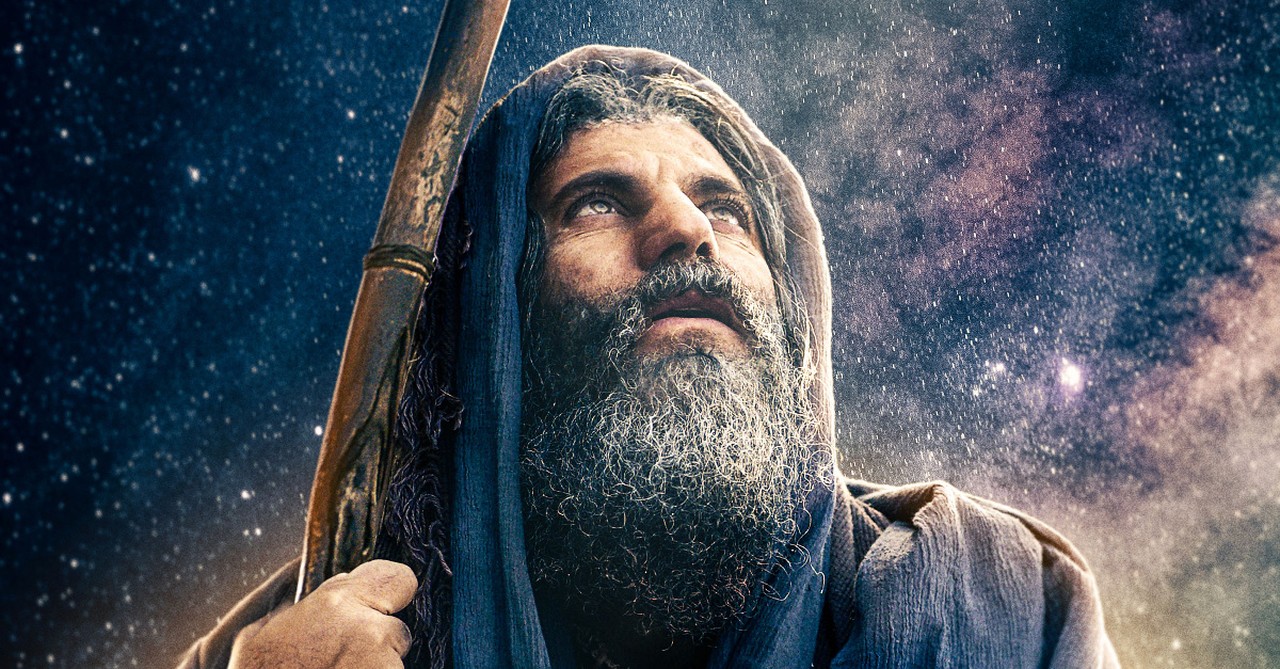
1. His Only Son
SLIDE 1 OF 6
The most recent adaptation of Abraham’s story on film, His Only Son may also be the most suspenseful Bible movie about Abraham. It centers around Abraham’s journey to Moriah, where God has commanded him to sacrifice Isaac (22). As Abraham and Isaac travel with several servants to Moriah, flashbacks fill in earlier parts of his story: Abraham and Sarah struggling with infertility, then the family drama as Sarah’s Egyptian servant Hagar carries Abraham’s son Ishmael. One servant asks Abraham challenging questions about whether he feels guilty for sending Hagar and Ishmael away or settling on land he didn’t inherit. Abraham wrestles with whether he has been a hypocrite in the past and whether he still trusts God’s plan.
Some of the ways that the movie cultivates suspense feel a little heavy-handed. There is a contrived subplot about Abraham and Isaac meeting sinister Canaanites en route to Moriah. It efficiently deploys backstory—Isaac learns that his father has a fierce reputation for defeating several Canaanite kings (Genesis 14)—but the intense tone feels forced.
The format also creates some inevitable. The fact that viewers only get glimpses of Sarah and Hagar through flashbacks means they seem a bit one-dimensional.
However, His Only Son effectively captures how dark this Bible story is: Abraham faced a harsh choice that seemingly contradicted everything he knew about God. The fact it ended surprisingly doesn’t make the story less dark; it shows how the Bible combines lightness and darkness to tell a redemptive story.
Further Reading: Top 10 Bible Movies of All Time
Photo Credit:©Angel Studios, used with permission.
2. Testament: Abraham
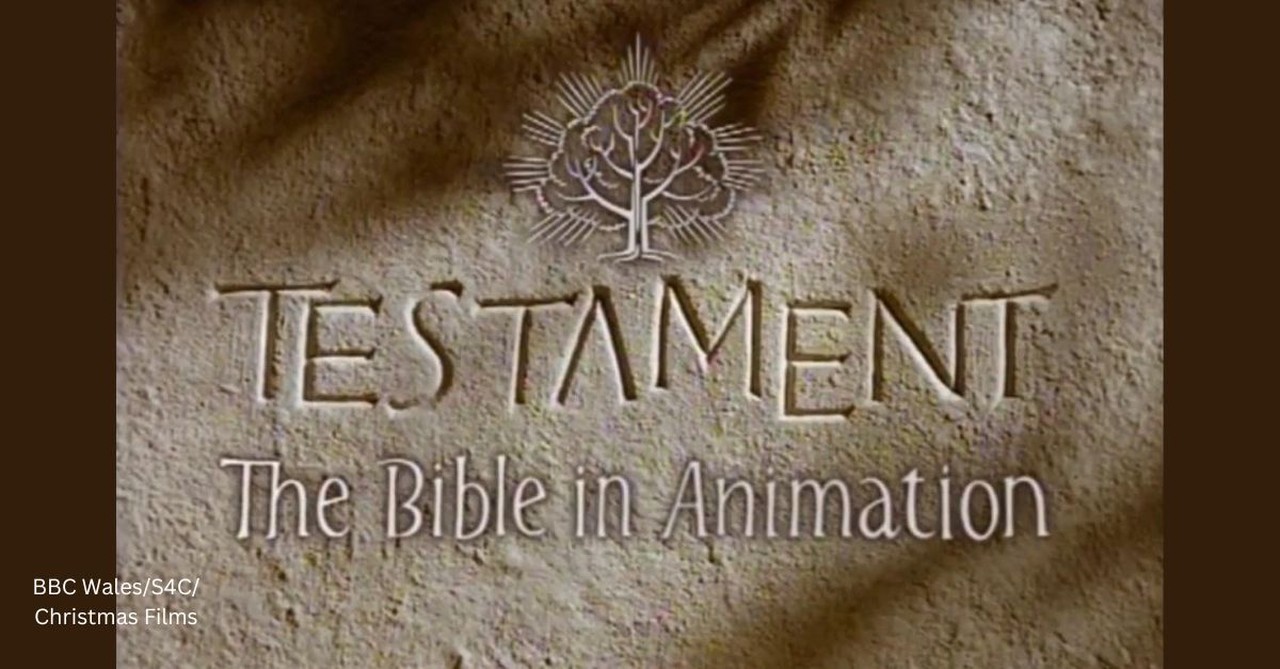
2. Testament: Abraham
SLIDE 2 OF 6
Testament: The Bible in Animation is an underrated series of Bible adaptations for children. Smarter and better animated than most Bible cartoons, these nine episodes aren’t easy to find today but are worth seeking out.
The episode on Abraham cleverly highlights how important time is to Abraham’s story. A recurring image of an hourglass reminds viewers how many years are occurring as the story continues: Abraham and Sarah waited decades for God’s promise to be fulfilled.
The story also highlights how foolish Abraham’s choice to emigrate to Canaan seemed. When God calls Abraham to a new land, he replies, “A land… to die in?” It’s a sad line but an important point: in his seventies, Abraham wouldn’t produce heirs that carried on his family line and expanded his estate unless he acquired more wives. Abraham was as good as dead in an Ancient Near Eastern culture that prioritized legacy. To be asked to leave his family land (something no one was supposed to do in a culture where families operated like little tribes, staying together and sharing resources) seemed crazy enough. Doing it when Abraham apparently had no future—no heirs who could inherit whatever he conquered in his new land—seemed crazier still.
An entertaining and intelligent take on Abraham’s story.
Viewers who enjoy this adaptation of Abraham’s story may also enjoy The Miracle Maker, a Jesus movie made by the same animation team.
Further Reading: 10 Must Watch Easter Movies about the Life of Jesus
Photo Credit:©BBC Wales/S4C/Christmas Films
3. The Bible: Beginnings
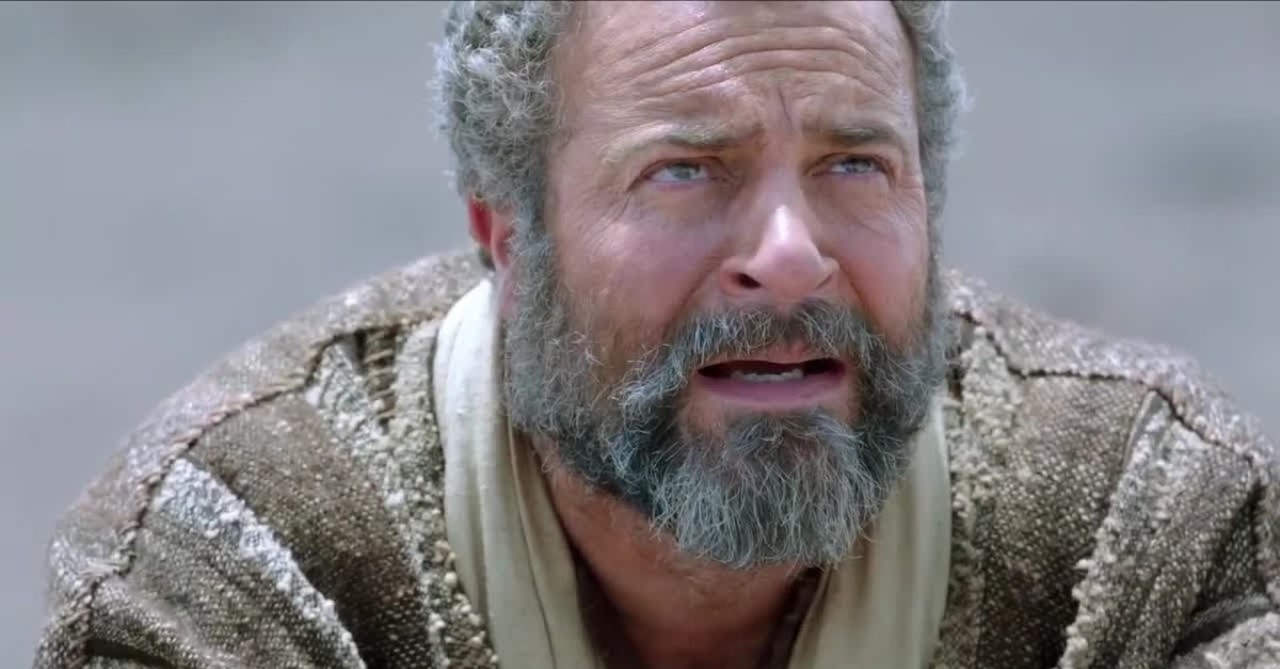
3. The Bible: Beginnings
SLIDE 3 OF 6
The Bible miniseries covered the high points of the Bible’s story in 10 episodes, from the Garden of Eden to Jesus’ resurrection. Since it was a very concise show, the first episode covered Abraham alongside the stories of Adam, Noah, and the destruction of Sodom and Gomorrah.
While the episode isn’t exclusively about Abraham, he gets the most screen time. In a very condensed runtime, it covers the high points of his life very well. While Hagar and Sarah don’t get much dialogue, the acting makes them seem more grounded than in many other Abraham movies. Since both women make hard choices and come to regret them years later, it’s easy to make them both appear melodramatic—loud reactions, swinging from one extreme to another. The measured acting highlights how both women did things that seemed right then, regretting their choices years later as the consequences became clearer.
One of the details that looks like compression to shorten the runtime may be more accurate than it appears. It looks like Abraham is only walking a few miles to reach Moriah, not three days to reach there (Genesis 22:4). However, Bema Project co-host Marty Solomon observes that what we know about the area’s geography suggests it should have only taken Abraham a day to reach Moriah. Abraham was likely delaying his destination, seeing if God would bring new news that meant he didn’t have to kill Isaac. So, curiously, this choice gets closer to what the Bible says than making the journey into a long journey.
An efficient, entertaining adaptation that shows how Abraham’s life fits into the larger Genesis narrative.
Further Reading: 10 Classic Moses Movies You Should See
Photo Credit:©Lightworkers Media/History Channel
4. Abe and the Amazing Promise
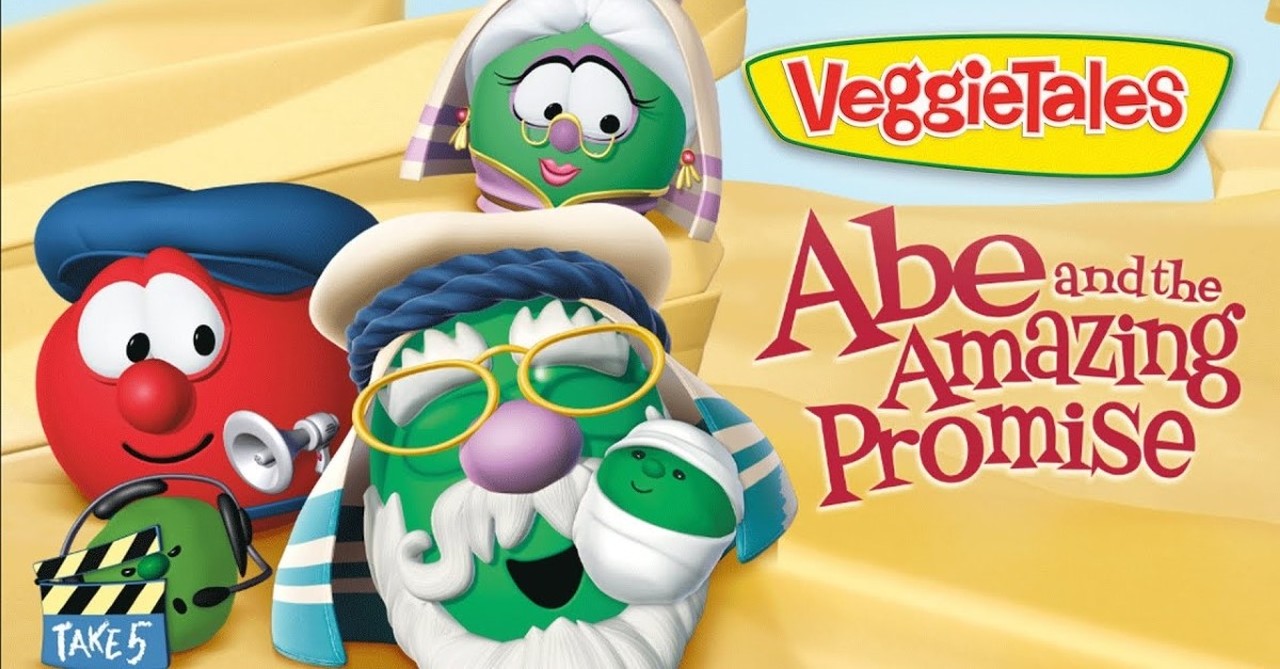
4. Abe and the Amazing Promise
SLIDE 4 OF 6
Recommended For Kids: Yes
If Testament: The Bible in Animation is one of the best serious Bible story adaptation series for children, then VeggieTales is one of the best comedic adaptations. Each episode based on a Bible story finds a way to retell the story tongue-in-cheek, from references to Jurassic Park to slapstick comedy, while capturing the key lesson.
“Abe and the Amazing Promise” features Bob the Tomato explaining Abraham's story to his friend, Junior Asparagus. While they manage to time travel and interview Abe and his wife Sarah about their lives, Junior is more worried about finishing the interview so he can be home in time to get freshly baked cookies. His impatience parallels the discussion about Abraham and Sarah waiting patiently for years to have a son.
This short adaptation skips most of the more mature elements—Hagar and Ishmael, the almost-sacrifice at Moriah. However, that doesn’t become a problem because this VeggieTales episode focuses on the material that makes a clear lesson: how to wait for something good.
Like most VeggieTales episodes, the Bible story only takes up part of the runtime. After a musical sequence, viewers get a tongue-in-cheek fairy tale about an inventor named Jacques who impatiently rushes his projects. When a crisis in his town means he has to quest for help, Jacques learns there is value in not rushing things.
A cute way to introduce younger viewers to the story of Abraham.
Further Reading: ‘VeggieTales’ Celebrates 30 Years of Faith and Fun with Bob and Larry
Photo Credit:©Big Idea Entertainment
5. The Bible Collection: Abraham
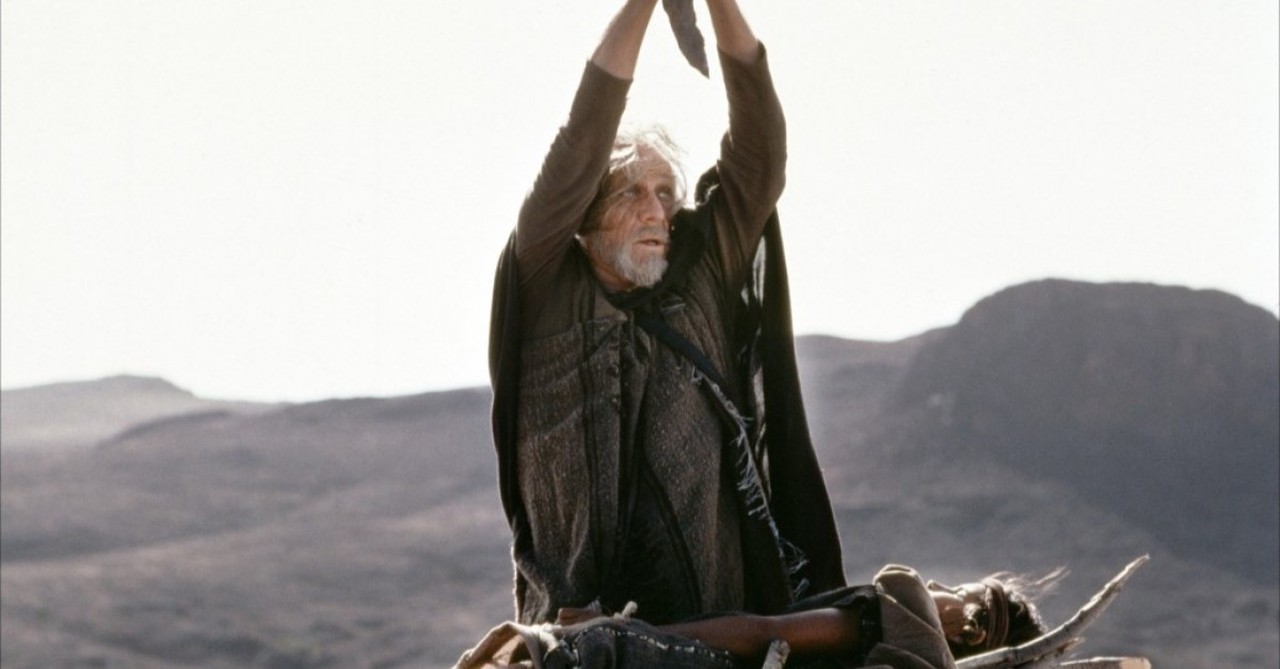
5. The Bible Collection: Abraham
SLIDE 5 OF 6
The Bible Collection was a series of TV movies about major biblical characters—Abraham through the apostles. While these movies predate the trend we call “prestige TV,” where TV movies look as good as theatrical films, the rough edges often aren’t that noticeable. Mainly, that’s because, as Jeffrey Richards noted in his book Hollywood’s Ancient Worlds, these movies didn’t rely much on special effects or staging huge battle scenes. Even in this first installment, where we get brief glimpses of battle scenes as Abraham fights five kings and God destroys Sodom and Gomorrah, the focus is on the characters.
The two-part movie covers Abraham’s life, including episodes rarely discussed in Sunday School. Sarah becomes part of the Pharoah’s household (Genesis 12), and while it’s portrayed as a near miss where the Pharoah never gets a chance to sleep with her, the movie doesn’t pretend this wasn’t an awkward episode. It tactfully depicts Hagar’s pregnancy, giving her more dialogue and character depth than in Bible movies.
The movie also makes a smart choice to begin the story before Abraham leaves for Canaan. The opening scenes show him in Haran with his family, using that material to underscore an important point: Abraham came from a polytheistic culture. Viewers watch his relatives—all used to giving offerings to various gods and goddesses, each connected to a location or activity—react to his claims that a “one true God over heaven and earth” has spoken to him. More than that, the God that none of them have heard of asks him to do something that no one finds sensible.
A nuanced look at Abraham’s journey, highlighting how countercultural his choices were and what sacrifices God asked him to make even before Isaac came along.
Further Reading: 10 Great King David Movies in the Bible
Photo Credit:©Beta Film/Lube/Lux Vide/Quinta Communications
Honorary Mention: The Bible: In the Beginning….
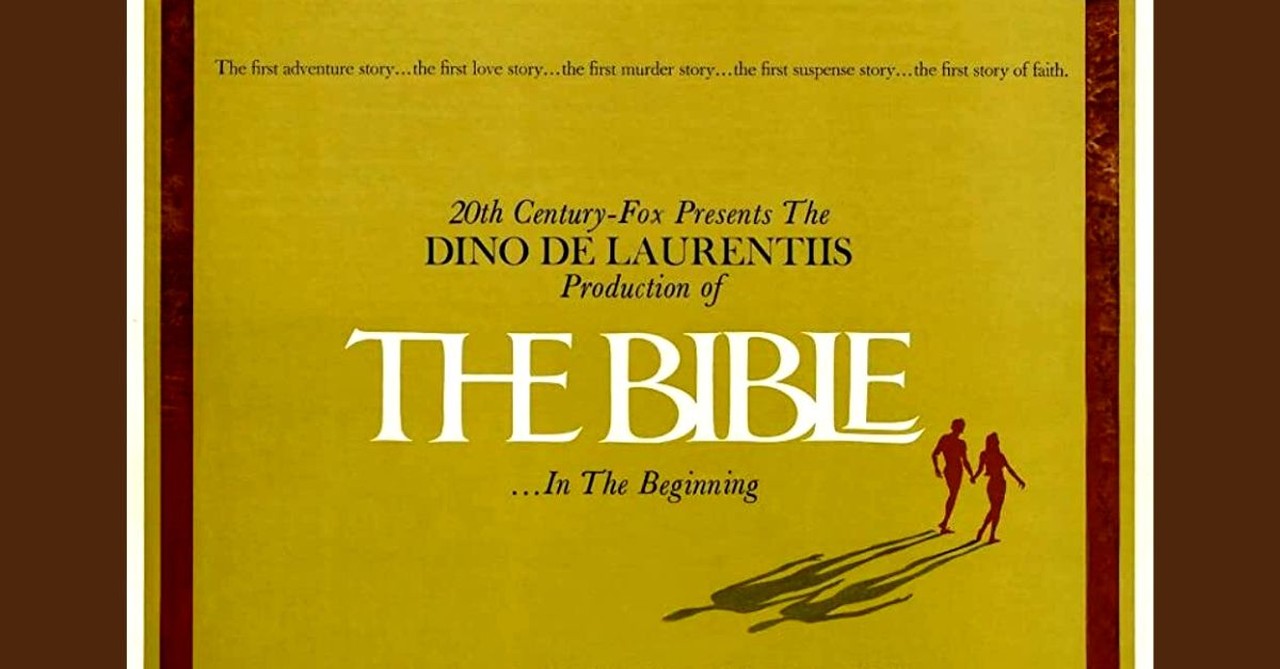
Honorary Mention: The Bible: In the Beginning….
SLIDE 6 OF 6
Planned as the start of a series, The Bible: In the Beginning didn’t make enough money to get any sequels, but it remains one of the best-aged biblical epics.
It has majestic outdoor scenes that create an epic atmosphere, but none of the camp melodrama that makes movies like Esther and the King seem cheesy today. It condenses events, but other than some added details about who probably built the Tower of Babel, it doesn’t embellish the biblical narrative much. All these factors make the movie well worth seeking out.
Even though the story doesn’t get to Abraham until halfway through its three-hour runtime, he’s easily one of the most memorable characters.
Partly, that’s because the movie balances portraying Abraham as a warrior and devout follower of God. Most adaptations make Abraham believably pious (waiting for God) but don’t convince viewers that he’s also a man who could take on _ kings. Here, the casting and directing make him seem formidable yet controlled, courageous enough to fight and blaze new trails as God calls him into a new land.
The Bible: In the Beginning… is also one of the few movies that captures how long Abraham and Sarah’s story takes. Most Bible movies imply that time is passing by, making the actors’ hair grayer, but little else indicates that decades are passing as the story continues. Here, the actors’ body language shifts with time, and the dialogue allows their personalities to shift as they age. They go from being a comparatively young, passionate couple expecting children to a settled couple unsure about their legacy to an older couple who can’t believe they’ve finally become parents.
Further Reading: Top 10 Bible TV Shows of All Time
Photo Credit:©Twentieth-Century Fox

Originally published June 20, 2024.



